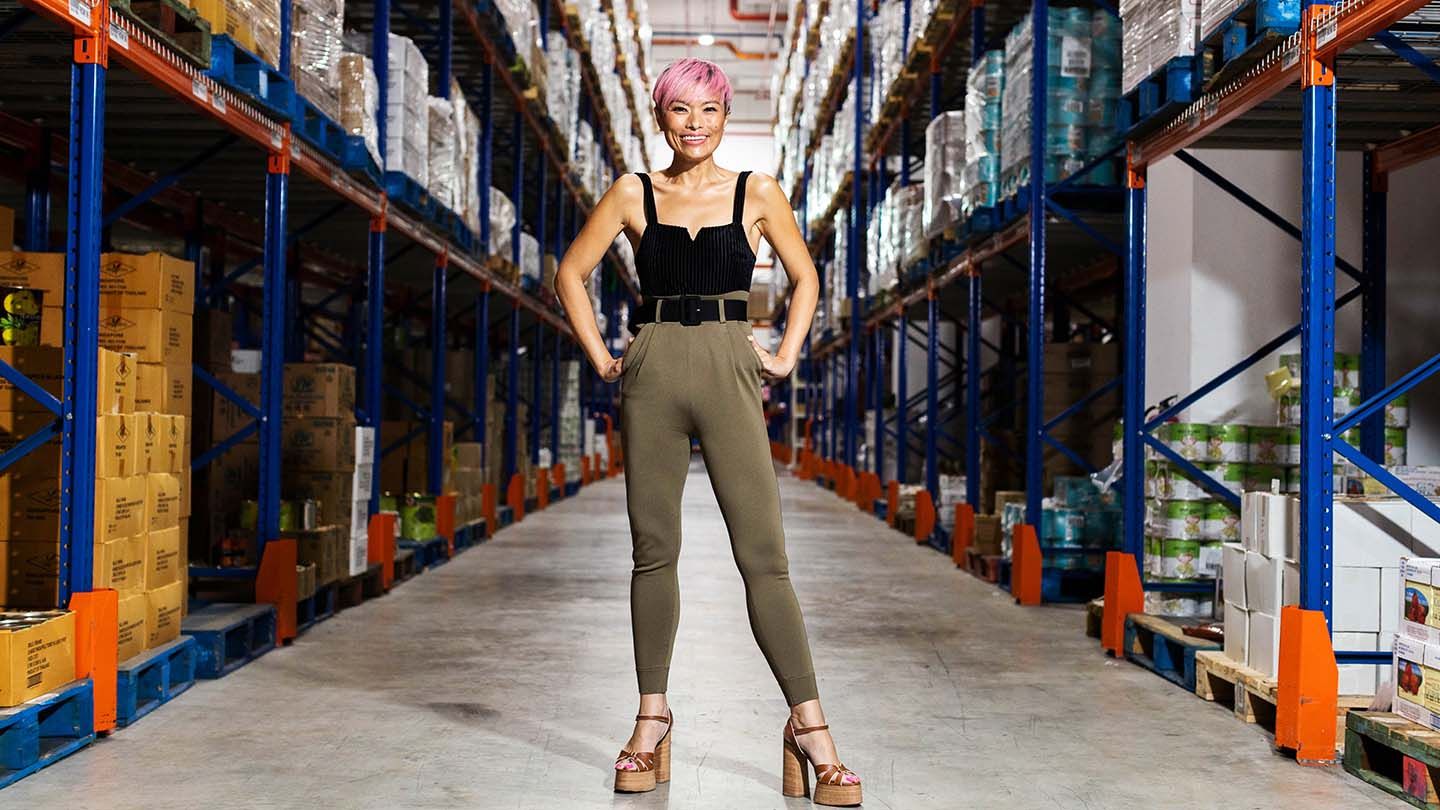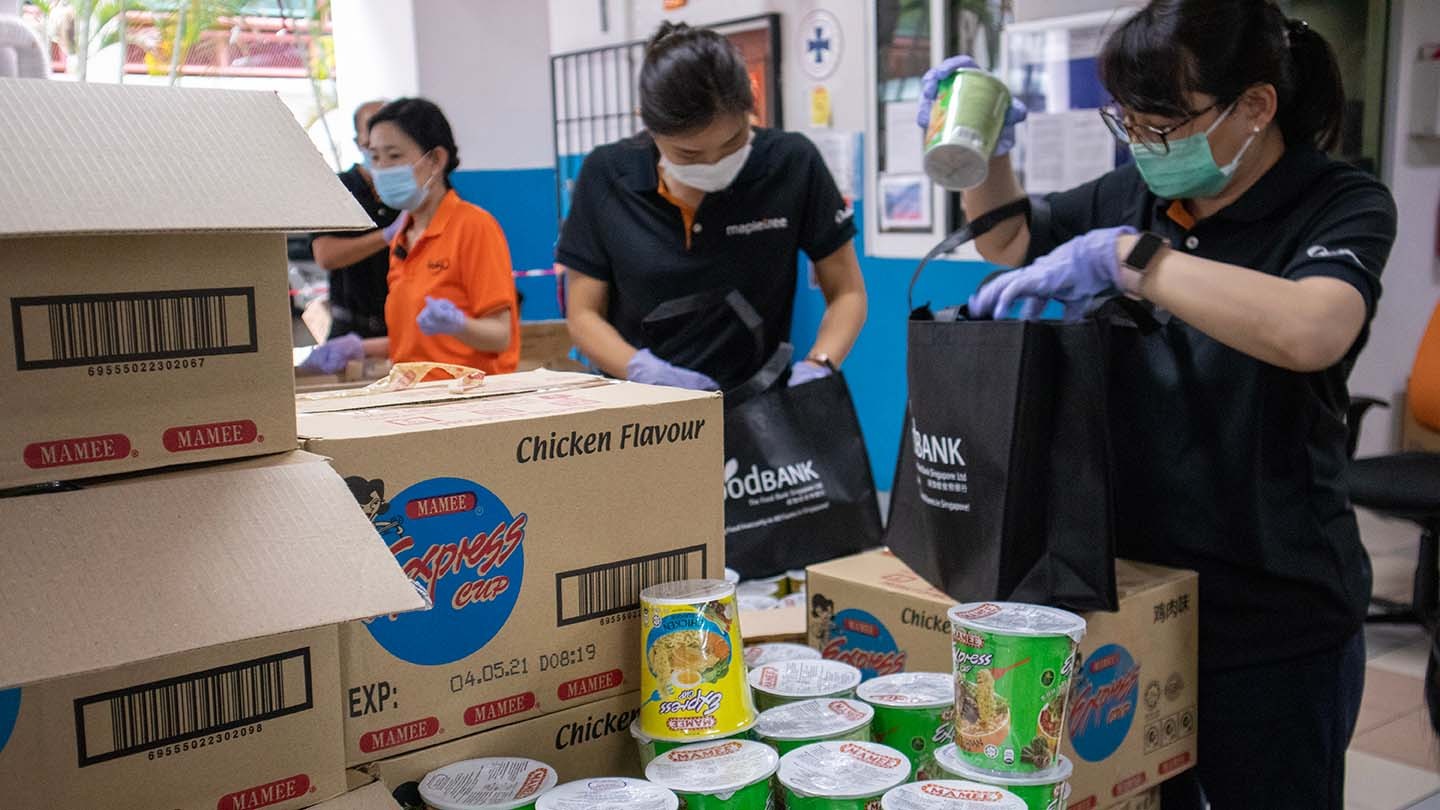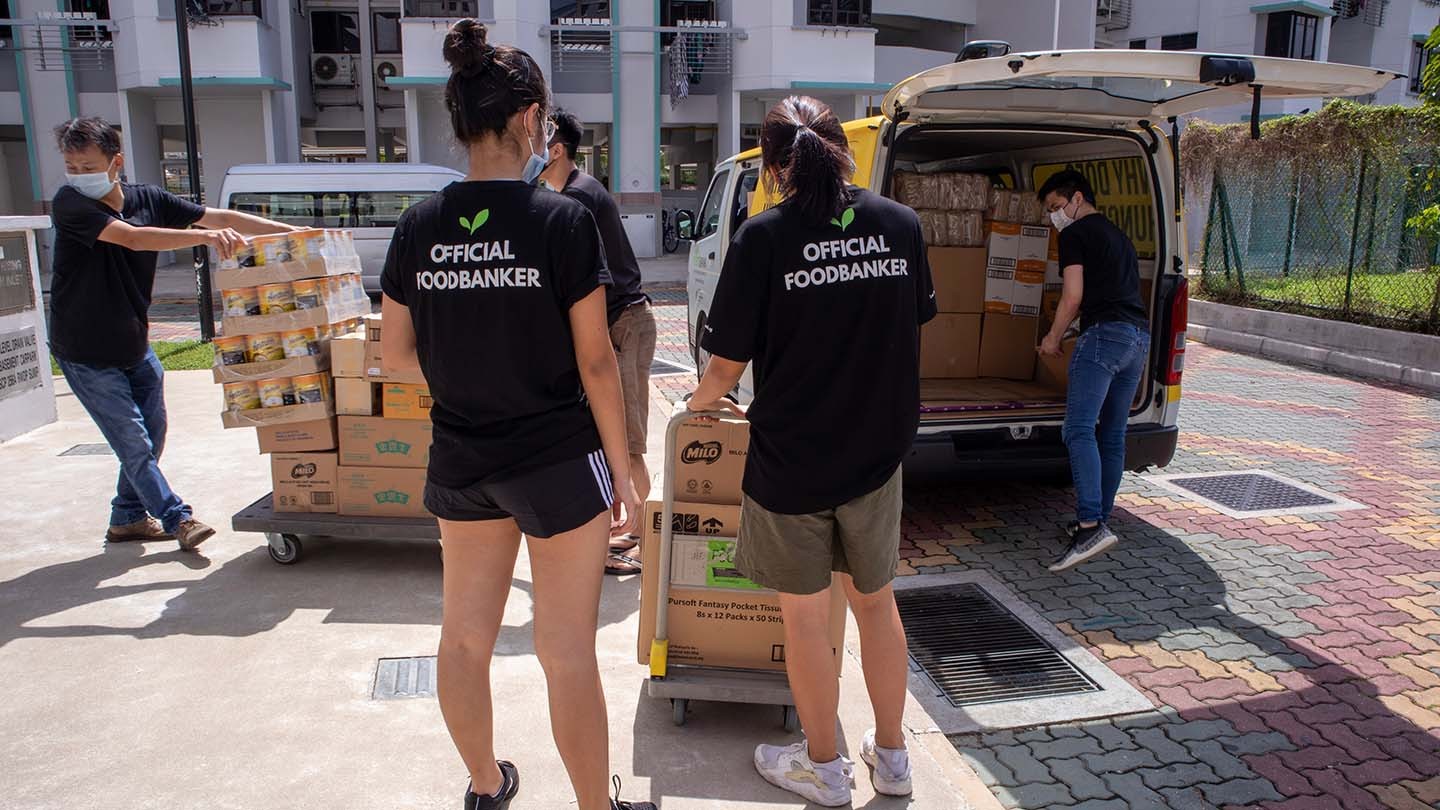
The Food Bank Singapore: “We wanted to reduce waste and feed the hungry”
When thousands of households found themselves out of work and facing hunger during the pandemic, The Food Bank Singapore stepped up its efforts to source and deliver hot meals across the island, with support from Barclays.
Having witnessed her family’s business come to the brink of bankruptcy when she was still a student, Nichol Ng knows how quickly life can change. Happily, thanks to a smart rebrand and restructure in 2007 by Ng and her siblings, the family’s food distribution company survived. In doing so, the business also made a pledge to give back to society as soon as it could.
The result is The Food Bank Singapore: the island’s first and only food bank programme, which was launched by the Ng siblings in 2012. “Singapore imports 90% of its food yet we realised almost a third of that food was being thrown away,” says Ng. “We wanted to motivate change, by reducing waste and hunger.”
Although Ng’s own business produces very little surplus food, she knew that through their contacts in the food industry, they could rally the supermarkets, restaurants and food suppliers to do something better than simply incinerating excess food – and partner with grassroots charities to reach people facing hunger.
Yet when COVID-19 spread across Singapore, new obstacles arose on the path to an already ambitious goal. “Our 2020 food poverty report found that 10.4% of people living in Singapore were facing some sort of hunger issue,” says Ng. “But when COVID-19 hit us, we believe that figure escalated by as much as 20%.”

With funding from large banks and companies, The Food Bank Singapore volunteers were able to distribute S $1m worth of food over a three-month period of the pandemic.
The donated food and the food bank card we have been given makes us feel independent.
supported by The Food Bank Singapore

Donations from The Food Bank Singapore helped to “reduce the burden” for people like Ms Tan and her family.
"We redistributed S $1m in just three months”
Currently working with 370 charitable organisations that, in turn, reach out to some 300,000 people, Ng and her colleagues knew they needed to pivot their strategy during the pandemic.
With many jobs “simply drying up” in Singapore, the pandemic shifted the image of what someone in need actually looks like. And as the need across the country increased, so too did The Food Bank Singapore’s need for support in distributing essential food rations.
Among the banks and corporations that stepped in to help was Barclays. With funding from Barclays’ £100m COVID-19 Community Aid Package, The Food Bank Singapore was able to provide nearly 78,000 cooked meals to families with children and elderly people who might otherwise have gone hungry.
The charity also used technology to change tack. Instead of using volunteers to distribute surplus food, Ng and her team mapped out the addresses of households in need and dropped off food to the locations identified. They also worked with restaurants to provide free, ready-made meals – rather than the usual dry ingredients – to those in need.
“We raised funds from large banks and companies,” explains Ng, “and used those funds to support restaurants that were severely hit with the COVID-19 closures, to redistribute S $1m worth of food in just three months.”
“Businesses have the power to change the world”
For Ng, it’s essential that her charity stays innovative in order to help more people like Ms Tan. In 2019, the organisation launched a food bank vending machine where food can be dispensed 24/7 to people in need.
“The food donations that come into our warehouse are checked and sorted, then put into the vending machines. We rolled out about 15 machines across the island in 2020 and we plan to roll out many more – for cooked food as well as dry ingredients,” explains Ng. “Everyone who uses the vending machine has a food bank card with food credits loaded on it, so that free meals can be redeemed at any time, even during the night. The concept is part of our latest programme called ‘Feed the City 3.0’.”
Ng and her siblings plan to take their food bank experience further afield. “We have just created The Food Bank Asia Limited,” she says. “We have a lot of excess food in Singapore, but the situation is very different in Indonesia, Myanmar, the Philippines and India. We’re now trying to provide container-loads of food and personal hygiene products. The first batch recently went to the Philippines, all packed in little cartons which can go directly to recipients, so local charities don’t even require volunteers for redistribution.”
As Ng and her team strive to improve the lives of those in her community and beyond, she emphasises the role businesses and organisations can play in creating change. “What this pandemic has taught us,” she says, “is that we cannot wait for any government to take action. Businesses have a responsibility to better the lives of the people around them and, collectively, I think businesses have the power to change the world.”
Barclays’ COVID-19 Community Aid Package
Barclays has established a £100m COVID-19 Community Aid Package to support communities impacted by the social and economic crisis caused by the pandemic. It consists of two components: charitable donations to non-profit partners working in the communities where Barclays operates; and a commitment to match personal colleague donations to their chosen non-profits who are helping COVID-19 relief efforts in their communities.
Find out more about Barclays’ COVID-19 Community Aid Package.